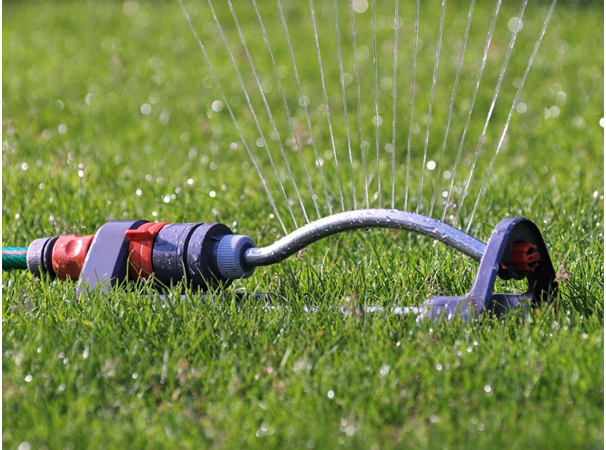Having a gorgeous lawn is what most of the homeowners expect when purchasing a house. After all, it contributes to the overall curb appeal and turns your home into a looker. Since plants can’t live without irrigation, you will have to find smart and effective ways to water your lawn. Being prepared for any scenario, like drought, water restrictions, and longer rainy period is the key, so here is what you can do.
Add smart controller to irrigation system
It may cost more, but a smart controller can turn your irrigation into a self-sufficient system. This controller anticipates the weather and state of the soil, ensuring that system releases the needed amount of water and not more or less. It is built with sensors that can measure the moisture in your soil and factor in the weather condition to determine how much watering your lawn needs.
Smart controller can thus lower your water bill and make sure you are not over watering your plants. In return, the expense of installing such device can pay you back your investment in a few years because of its water-saving properties.
Examine for leaks
You primary concern is not to waste water while at the same time your plants are taken care of. Before the summer starts, examine the whole system for leaks, as well as manual water hose and fittings. Good news is that you can hire someone to maintain your lawn, making sure their services include examining and servicing of the irrigation system.
A weekly inspection of the system is the best way to notice leaks and act quickly to fix them. While they will prevent wasting of water and increased bills, leaks cause some parts of the lawn to be more irrigated than others. As a result, your lawn may decay or dry out, having you spend more money to take care of the damage than you would for professional leak inspection.
Collect rainwater
If you want to use every resource available and be gentle to the environment, then collecting rainwater in a barrel is a smart and effective way to do it. You may need to hire someone to connect the barrel to your irrigation system, but this will not cost much and you can even get municipal aid to do it.
Rainwater is great for plants since it doesn’t have chemicals used to purify drinking water you will also use for watering. Moreover, during the drought periods, you don’t have to worry that your lawn will suffer due to water restrictions.
Update your watering equipment
During the water restrictions, it’s best to turn off your automatic irrigation system and switch to manual watering. Today’s equipment is design to preserve as much water as possible and provide you with efficient irrigation to keep the plants alive. A retractable garden hose reel will allow you to access the plants so that you water the roots and not the leaves.
Check the state of your hose fittings as well since they can deteriorate after a while and cause leaks. Furthermore, upgrading to a drip system can also be a good idea and will make sure that plants receive at least some amount of water.
Consider a rain shutoff device
If you are looking for an inexpensive solution, then automatic rain shutoff device may be what you need. It works on the principle of detecting rainfall levels and shutting off the irrigation system, protecting your lawn from overwatering. Those who live in rainy regions can benefit a lot from this device since it will make sure the plants are properly irrigated during sunny periods.
Since you will have to consider how much rainfall is enough to activate the shutoff feature, it’s best to consult with an expert to get it right. A lot will depend on the soil type, irrigation system you use, and what kind of plants you grow on the lawn.
In conclusion
To use smart and effective ways to water your lawn you need to know what’s available in the market. For cheaper solution, you can do it manually with a hose or collect rainwater in a barrel and connect it to your irrigation system. While more expensive methods can seem like the last resort, a lot of them will pay off through lower water bills. Of course, you can use more than one method, making sure you are prepared for any scenario and willing to sustainably use water.


